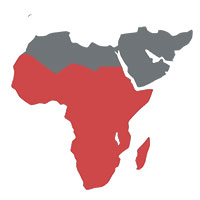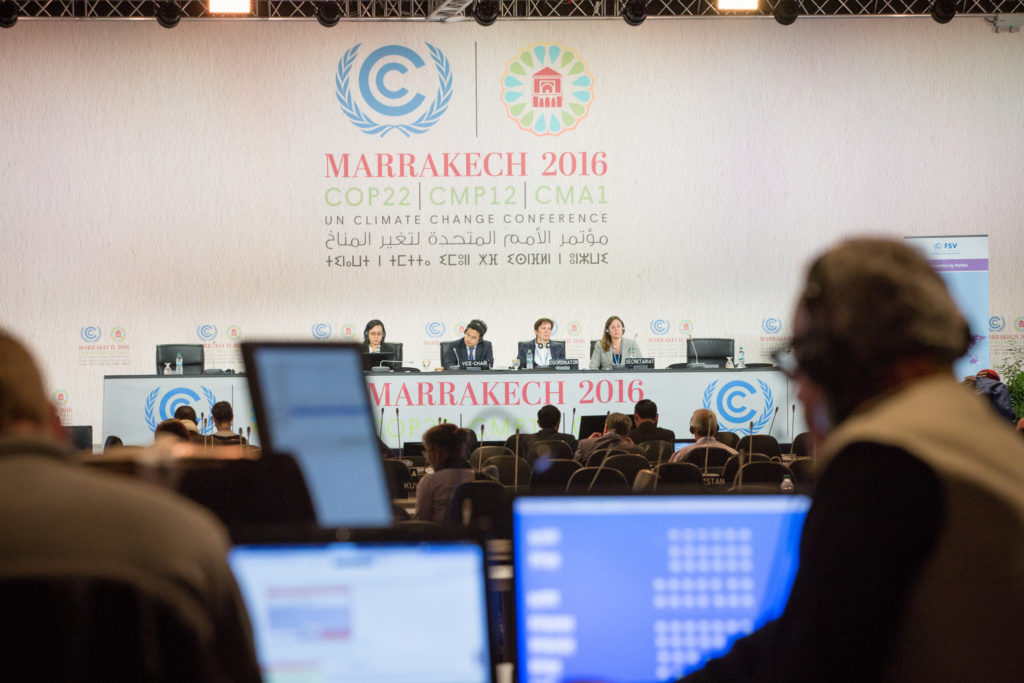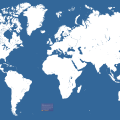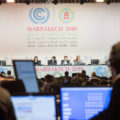Back to Business
Forrest Watkins | November 11, 2016.
Attendees were due for a rebound as UN climate negotiations enter into its fourth day in Marrakech.
With the previous day being spent digesting the shocking results of the US presidential election and contemplating the implications of a Trump presidency on international climate action, negotiations progressed slowly.
Early Thursday, though, news rolled in that Australia had ratified the Paris Agreement, an important signal from a major coal producer that has struggled in recent years to gather popular will around climate action. Despite being the 103rd country to ratify, the news came as an important reminder of the global consensus surrounding the need for strong mitigation and adaptation efforts to combat climate change.
Although the results of the US election linger throughout the conference centre; things were largely back to business. The presidency released a document giving a date by which the negotiating body has to define its interpretation of the agreement and suggests a schedule for continued work and reviews in 2017 and 2018. It also contains placeholder text for decisions on the facilitative dialogue that will take place in 2018 and address the ambition levels of countries’ contributions.
The structure of these future talks is itself a major focus of the Marrakech negotiations. Pre-2020 action is vital to stopping catastrophic warming, and NGO representatives fear that a lack of structure could threaten the progress of those talks and the necessary escalation of climate action that they aim to bring about.
Another element of the talks that seems to be escalating is discord over the US$100 billion per year that developed countries promised to contribute to developing countries’ mitigation and adaptation efforts. Exemplifying this was Bangladesh, who used the platform of Green Climate Fund hearings to speak out on a few key points of contention.
The delegation noted that adaptation financing was more important to many developing countries’ interests. So far, financing for mitigation efforts has far outweighed that intended for adaptation efforts.
Bangladesh also raised the issue of the finance roadmap developed countries released in preparation for Marrakech arguing it was misrepresentative about actual contributions of donor countries. It also places unfair limitations to developing countries trying to access funding could lead to loss of ambition.
As Friday moves to close out week one, the start of the facilitative dialogue, that will lay out the framework for the meetings in subsequent years, should hopefully ramp up the pace and sense of urgency in Marrakech.














comment